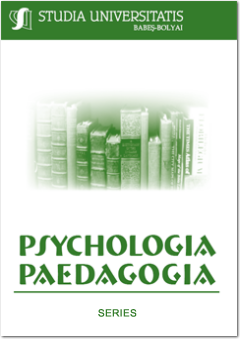COOPERATIVE LEARNING AND MINDSET WITH YOUNG STUDENTS
COOPERATIVE LEARNING AND MINDSET WITH YOUNG STUDENTS
Author(s): Simona Laurian-Fitzgerald, Carlton FitzgeraldSubject(s): Psychology
Published by: Studia Universitatis Babes-Bolyai
Keywords: cooperative learning; growth mindset; social skills.
Summary/Abstract: Cooperative learning has been an important philosophy of teaching and learning for many years (Johnson & Johnson, 2013). The concepts of cooperative learning are now more important than at probably any other time in education. The skills necessary for the future go beyond the core subjects taught in schools (Wagner, 2008). Skills like communication, critical thinking, problem solving, innovative thinking, creativity, teamwork, collaboration, and negotiating are far more important than are the skills used to memorize facts for tests or learning the basics (Caine & Caine, 2011; Pink, 2006; Wagner, 2008; Zhao, 2013). Additionally, students who succeed in school and in life tend to be those students who can persevere during times of difficulty (Duckworth, 2013; Dweck). We need our future leaders of this world to understand how to get along with other people and solve problems in more effective ways than the use of bombs (Fitzgerald, 2013; Glasses, 2006). Education has to change or our students and our nation will be left behind (Pink, 2006; Wagner, 2008).This study was developed to determine if first grade students could learn complex social skills and develop positive mindsets. We worked with a class of first grade students for eight weeks introducing three social skills and putting students into cooperative groups to solve complex issues. The results were encouraging and point to the idea that first grade students can grow in the positive mindsets and learn to work cooperatively with their peers. These students give us hope for our future.
Journal: Studia Universitatis Babes-Bolyai - Psychologia-Paedagogia
- Issue Year: 61/2016
- Issue No: 1
- Page Range: 63-82
- Page Count: 20
- Language: English

